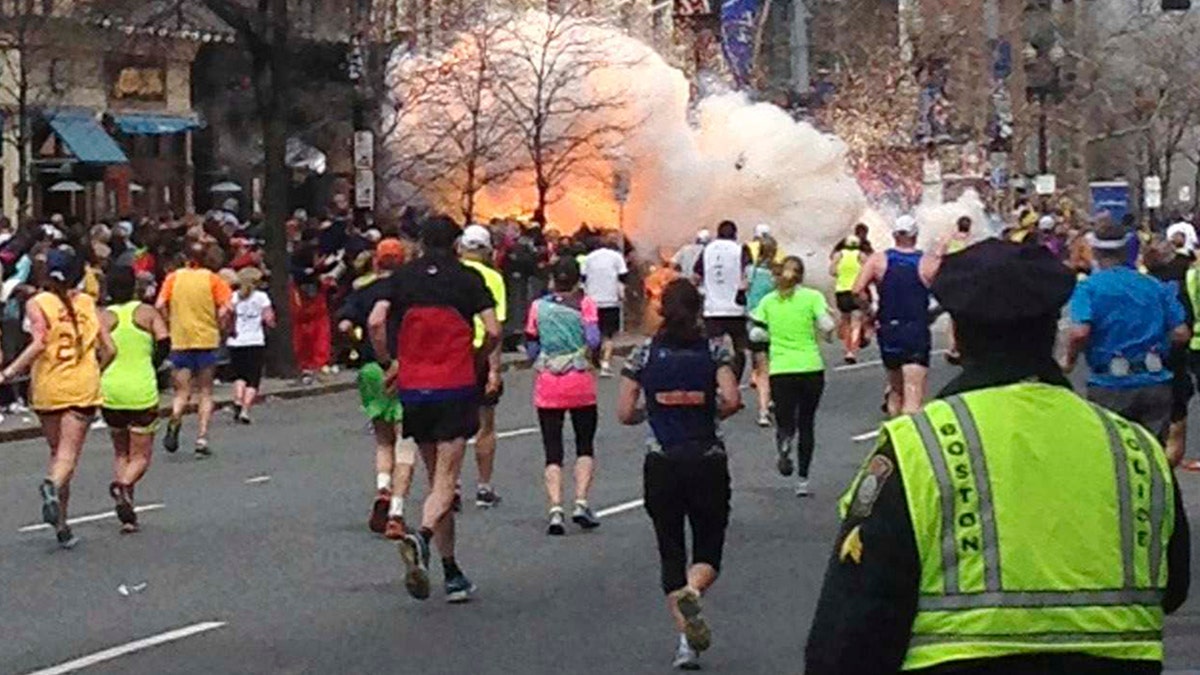
Runners continue to run towards the finish line of the Boston Marathon as an explosion erupts near the finish line of the race. (REUTERS/Dan Lampariello)
People who viewed or listened to coverage of the Boston Marathon bombings for six or more hours a day in the week following the disaster experienced acute stress comparable to being at or near the bombings, Medical Xpress reported.
In a study published in the Proceedings of the National Academy of Sciences, researchers surveyed 4,675 people two to six weeks after the marathon bombings, in order to assess their acute stress responses. Symptoms of acute stress were characterized by feeling on-edge or hyper-vigilant, experiencing intrusive thoughts, avoiding reminders of the event or developing a feeling of detachment.
Overall, people who consumed six or more hours of media coverage of the disaster each day were nine times more likely to experience high acute stress, compared to those who viewed less than one hour of media coverage daily. With each additional hour that people consumed bombing-related media – whether through television, social media, video, print or radio – their acute stress response increased.
The researchers warned that continued exposure to violent or frightening imagery can have long-lasting effects on mental health.
"When you repeatedly see images of a person with gruesome injuries after an event is over, it's like the event continues and has its own presence in your life," said lead author E. Alison Holman, associate professor of nursing science at University of California, Irvine. "Prolonged media exposure can turn what was an acute experience into a chronic form of stress. People may not realize how stressful these media-based exposures are. Looking at these images over and over again is not productive and may be harmful."








































